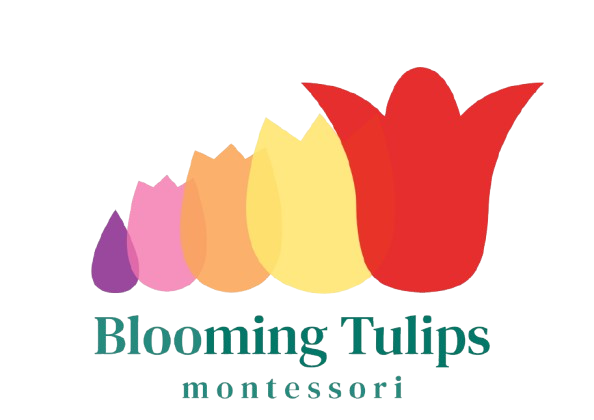A child’s brain develops up to 90% by age five! At this age, their brain is almost fully formed, making the first five years a crucial opportunity for developing connections that power the brain and impact lifelong learning and success.
The links created during these early years can help set the child up for future achievements. Childhood offers a unique opportunity to shape a child’s holistic development and build a foundation for their future. Science has proven that a child’s experiences can directly influence their brain development. Positive and nurturing experiences can help form essential connections that lead to long-term health benefits and a higher ability to learn and succeed. That is why the early years are so critical. During this time, a child’s brain develops rapidly, and the connections they create can play a vital role in building skills like motivation, problem-solving, and communication. These skills form a foundation for future success and are much harder to develop later in life.
During early childhood, a child’s brain makes over a million neural connections every second – more than any other period. This amazing fact presents a golden opportunity for parents to support their child’s growth and development through suitable activities and nutrition. These connections create the brain’s workings and significantly impact learning, health and behaviour throughout one’s life. At infancy, they already possess all the brain cells required for their life, yet the connections between these cells allow the brain to thrive. Such significant growth during the early years highlights the limitless potential that comes with substantial risk.
Remember, 0 to 5 years provides the most critical opportunity and influence over life’s future journey. So, embrace the opportunity, and help your child build the best possible foundation for their future! The journey of building a brain starts right from birth.
A child’s brain connections are formed and developed through everyday experiences and interactions. Early childhood care and interaction quality determine which connections are created and will last a lifetime.
As the child grows, their brain starts refining itself and strengthening connections that are used often while eliminating ones that are not. Just like building muscles, the more it’s used, the stronger it gets. Numerous studies show that children who grow up in a positive and nurturing environment with plenty of support, positive interaction, and stability will lead healthier and more successful life.
“Nurturing healthy brain development right from the start is so crucial. Because the better the foundation, the better the chances of a healthy, successful life.”
The Baby Brain
Experiences Build Brain Architecture
Brain develops through experiences
How does the Montessori method help with brain development
Montessori education is an all-encompassing approach stimulating children’s cognitive development via brain-based methods, allowing them to discover and absorb knowledge about the world through self-expression and collaborative play. In this beautifully crafted environment of respect, peace and joy, there’s a Sensitive Period, and children’s brains possess the Absorbent Mind, enabling them to learn effortlessly. Montessori curriculum consists some critical aspects;
A prepared environment: Montessori approach values meticulously selecting and arranging the furniture, tools, and ornaments in the learning space. The materials selected are precious, beautiful, and breakable to instil a sense of reverence in the children and to highlight the importance of treating them with care. This unique approach fosters a deep connection to purposeful and profound everyday interactions with the world.
Critical Thinking: The Montessori curriculum offers learning materials that encourage critical thinking, and educators provide children with age-appropriate activities to develop their cognitive skills and increase their vocabulary. Additionally, practical life and sensorial activities assist children in developing concentration, problem-solving, and memory. These activities help children develop higher critical thinking, which leads to cognitive development.
Interactions and Communications: Montessori promotes imaginative or cooperative play among children, promoting strong interactive skills that foster learning together, allowing children to learn from each other. These activities pave the foundation for social skills.
Problem-solving ability: Montessori children are encouraged to organise thoughts, solve problems, and learn new skills at their own pace. The long work periods provide sufficient time to learn a concept, take turns, and formulate strategies. Furthermore, children are stimulated to recognise and correct their mistakes, laying a foundation of problem-solving, sound decision-making, and analysis skills for cognitive development.
Concentration: The Montessori approach fosters engagement as children work side-by-side and develop new learning skills. Various resource materials, such as transferring activities, colour sorting activities, threading and sewing exercises, help children to improve focus, concentration and independence.
Montessorian explains how to expand your baby’s potential with education from birth
Zahra Kassam is a Montessori teacher holds a BA in Psychology from Harvard and a Master’s degree from the Harvard Graduate School of Education. Zahra has been invited to the White House Early Education Summit, named a Global Education Influencer, named a ‘World Changing Woman’ and was nominated for the Dalai Lama Unsung Heroes of Compassion Awards for her work with children.
“Children develop their brains as well as their bodies through movement, and in the process of concentration, self-discipline, and perseverance with an active interest, the foundations of character are laid. To give our children a fine start in life we must see that their surroundings satisfy their need for activity and development, remembering at the same time that our own part is not that of instructor and interferer but of helper and friend. ” ––Maria Montessori
References

Hi, my name is Dilia. I am the founder and managing director of Blooming Tulips Montessori Nursery. I am passionate about childcare and am doing my part to help make our world a better place by caring for, educating, and nurturing young hearts and minds.
“I believe the childcare practitioners are doing one of the most important jobs in the World; ‘They can play their part in making this world a better place by providing quality care and education for children. As a mentor and coach it is my obligation to make sure I do everything I can to create this mindset in my practitioners.’ Once this belief is internalised, that person can find meaning in even the most mundane tasks.” – Dilia Bas
Parents, Let’s work together!
“Your child is a unique individual with boundless potential and possibilities. By working together, we can unlock the doors to a life full of excitement and fulfilment. We can inspire young learners to embrace a life-long love for knowledge. From thinking mathematically to creating masterpieces, let’s nurture your child’s unique potential. Help your child to discover their capabilities and build deep personal values that will serve them well through adulthood. Let’s help them become unstoppable forces of good in the world. Together we can do this!” Dilia
